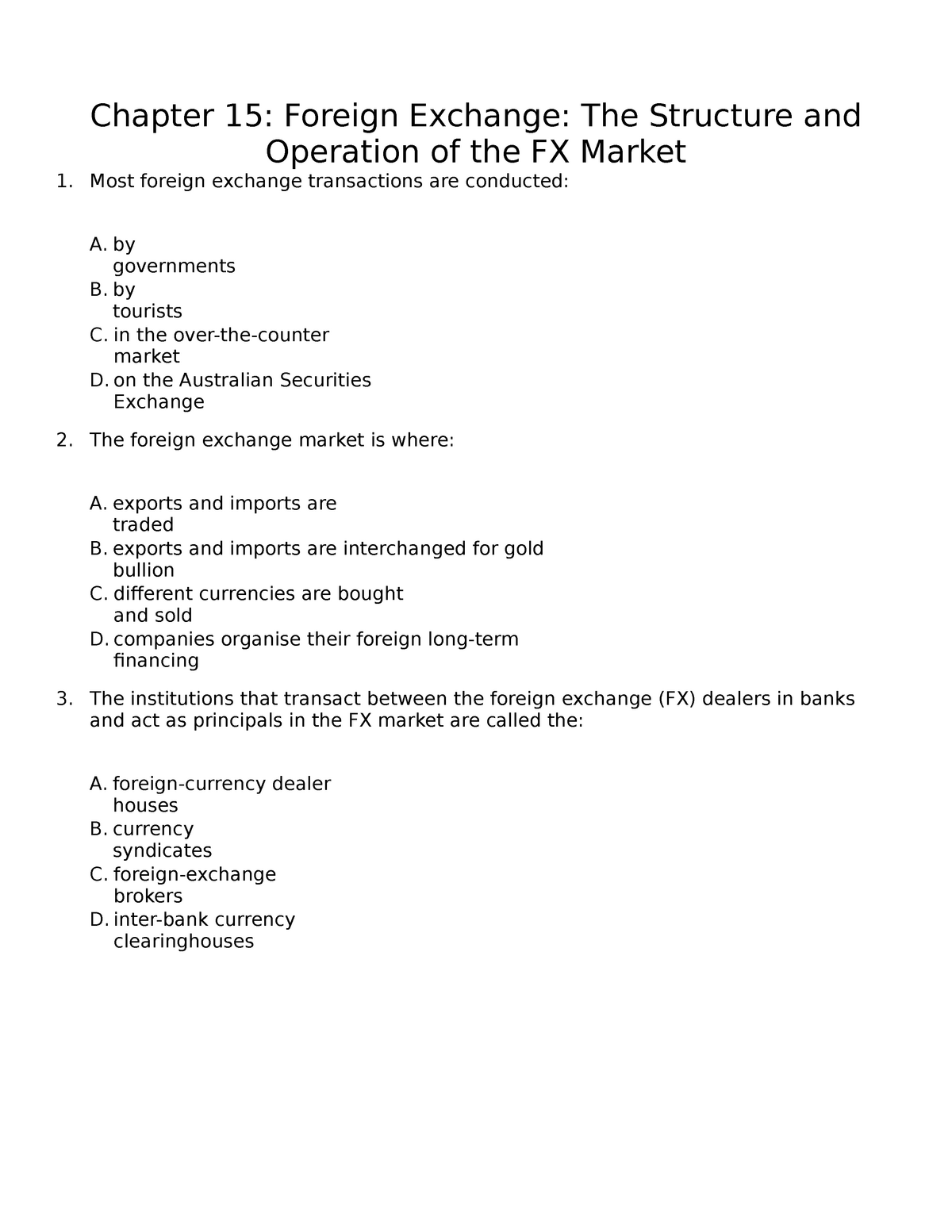
While adding leverage to your portfolio is an excellent idea, it comes with significant risks. Futures trading is a complex business. You need to understand the risks and how they impact your portfolio. Only trade with the amount you have available, and don't trade with more risk capital than you can manage. It is also a good idea to diversify your portfolio and spread your investments among different assets and contracts.
Various commodities are available for trading in futures. They vary in value depending on demand and supply. If there is strong demand for a particular commodity it means that it is more likely to trade higher in the upcoming trading sessions. Contrariwise, if there is a large supply of the same commodity, it can lead to lower prices in the future. Futures contracts are a useful tool for managing commodity price volatility risks.

Futures contracts can be traded on a range of underlying assets such as foreign currency and metals. These are typically standard contracts with certain features. These include an expiry day, a margin, or a standardized underpinning asset. There are four types of futures contracts: commodity, stock, currency pair, and index. A futures contract is an obligation to buy a particular quantity of an asset at a given price on a specified date. Futures contracts are derivatives that can be traded on the basis of physical products. They have high leverage. This leverage can increase the amount you are able to make or lose. You can trade futures for a fraction as much as the underlying asset.
There are two types speculators: hedgers or speculators. Hedgers are usually companies while speculators, on the other hand, are individuals who trade commodity commodities. Hedgers are interested in locking in favorable future trading price levels at the moment, while the speculators look to make money from futures contract price changes.
The market may offer many opportunities for speculators to profit. To increase his or her gains, he might use leverage. Or he might use spreads to spread investments in multiple contracts that have opposite positions. He could also use calendar Spreads, which are the simultaneous purchase or sale of two contracts. This type of strategy is similar to a stop order, and can be a great way to reduce the volatility of your futures position.

It's not always easy to purchase and sell futures. The first step for a trader is to decide how much money to put into his or her futures account. This depends on how large the account is and how much funding is available. Also, the margin that you are willing to take on the contract will affect its price. In other words, you will need to put up a certain percentage of the value of the futures contract.
FAQ
What is security in the stock exchange?
Security is an asset that generates income. Most security comes in the form of shares in companies.
A company could issue bonds, preferred stocks or common stocks.
The earnings per shares (EPS) or dividends paid by a company affect the value of a stock.
Shares are a way to own a portion of the business and claim future profits. If the company pays a dividend, you receive money from the company.
You can sell your shares at any time.
Why are marketable securities Important?
An investment company's primary purpose is to earn income from investments. It does this by investing its assets in various types of financial instruments such as stocks, bonds, and other securities. These securities have attractive characteristics that investors will find appealing. They are considered safe because they are backed 100% by the issuer's faith and credit, they pay dividends or interest, offer growth potential, or they have tax advantages.
A security's "marketability" is its most important attribute. This refers primarily to whether the security can be traded on a stock exchange. If securities are not marketable, they cannot be purchased or sold without a broker.
Marketable securities are government and corporate bonds, preferred stock, common stocks and convertible debentures.
These securities are preferred by investment companies as they offer higher returns than more risky securities such as equities (shares).
What is the purpose of the Securities and Exchange Commission
Securities exchanges, broker-dealers and investment companies are all regulated by the SEC. It also enforces federal securities laws.
What are some of the benefits of investing with a mutual-fund?
-
Low cost - buying shares from companies directly is more expensive. Purchase of shares through a mutual funds is more affordable.
-
Diversification is a feature of most mutual funds that includes a variety securities. If one type of security drops in value, others will rise.
-
Professional management - Professional managers ensure that the fund only invests in securities that are relevant to its objectives.
-
Liquidity - mutual funds offer ready access to cash. You can withdraw the money whenever and wherever you want.
-
Tax efficiency - mutual funds are tax efficient. Because mutual funds are tax efficient, you don’t have to worry much about capital gains or loss until you decide to sell your shares.
-
For buying or selling shares, there are no transaction costs and there are not any commissions.
-
Easy to use - mutual funds are easy to invest in. You only need a bank account, and some money.
-
Flexibility - you can change your holdings as often as possible without incurring additional fees.
-
Access to information - You can view the fund's performance and see its current status.
-
Investment advice - ask questions and get the answers you need from the fund manager.
-
Security - you know exactly what kind of security you are holding.
-
You can take control of the fund's investment decisions.
-
Portfolio tracking - you can track the performance of your portfolio over time.
-
You can withdraw your money easily from the fund.
There are some disadvantages to investing in mutual funds
-
There is limited investment choice in mutual funds.
-
High expense ratio – Brokerage fees, administrative charges and operating costs are just a few of the expenses you will pay for owning a portion of a mutual trust fund. These expenses will eat into your returns.
-
Lack of liquidity - many mutual funds do not accept deposits. They must only be purchased in cash. This restricts the amount you can invest.
-
Poor customer service. There is no one point that customers can contact to report problems with mutual funds. Instead, you need to contact the fund's brokers, salespeople, and administrators.
-
Rigorous - Insolvency of the fund could mean you lose everything
What is a bond?
A bond agreement between two parties where money changes hands for goods and services. It is also known to be a contract.
A bond is typically written on paper, signed by both parties. The bond document will include details such as the date, amount due and interest rate.
The bond is used when risks are involved, such as if a business fails or someone breaks a promise.
Bonds are often used together with other types of loans, such as mortgages. The borrower will have to repay the loan and pay any interest.
Bonds can also raise money to finance large projects like the building of bridges and roads or hospitals.
It becomes due once a bond matures. That means the owner of the bond gets paid back the principal sum plus any interest.
If a bond does not get paid back, then the lender loses its money.
What's the difference among marketable and unmarketable securities, exactly?
The principal differences are that nonmarketable securities have lower liquidity, lower trading volume, and higher transaction cost. Marketable securities can be traded on exchanges. They have more liquidity and trade volume. These securities offer better price discovery as they can be traded at all times. But, this is not the only exception. Some mutual funds, for example, are restricted to institutional investors only and cannot trade on the public markets.
Marketable securities are more risky than non-marketable securities. They have lower yields and need higher initial capital deposits. Marketable securities are usually safer and more manageable than non-marketable securities.
A large corporation may have a better chance of repaying a bond than one issued to a small company. The reason for this is that the former might have a strong balance, while those issued by smaller businesses may not.
Because they are able to earn greater portfolio returns, investment firms prefer to hold marketable security.
Statistics
- Individuals with very limited financial experience are either terrified by horror stories of average investors losing 50% of their portfolio value or are beguiled by "hot tips" that bear the promise of huge rewards but seldom pay off. (investopedia.com)
- "If all of your money's in one stock, you could potentially lose 50% of it overnight," Moore says. (nerdwallet.com)
- Even if you find talent for trading stocks, allocating more than 10% of your portfolio to an individual stock can expose your savings to too much volatility. (nerdwallet.com)
- US resident who opens a new IBKR Pro individual or joint account receives a 0.25% rate reduction on margin loans. (nerdwallet.com)
External Links
How To
How to Invest in Stock Market Online
The stock market is one way you can make money investing in stocks. You can do this in many ways, including through mutual funds, ETFs, hedge funds and exchange-traded funds (ETFs). Your risk tolerance, financial goals and knowledge of the markets will determine which investment strategy is best.
Understanding the market is key to success in the stock market. This includes understanding the different investment options, their risks and the potential benefits. Once you have a clear understanding of what you want from your investment portfolio you can begin to look at the best type of investment for you.
There are three major types of investments: fixed income, equity, and alternative. Equity refers to ownership shares of companies. Fixed income can be defined as debt instruments such bonds and Treasury bills. Alternatives include commodities and currencies, real property, private equity and venture capital. Each category has its pros and disadvantages, so it is up to you which one is best for you.
Once you have determined the type and amount of investment you are looking for, there are two basic strategies you can choose from. The first is "buy and keep." This means that you buy a certain amount of security and then you hold it for a set period of time. Diversification is the second strategy. It involves purchasing securities from multiple classes. You could diversify by buying 10% each of Apple and Microsoft or General Motors. Buying several different kinds of investments gives you greater exposure to multiple sectors of the economy. You can protect yourself against losses in one sector by still owning something in the other sector.
Another important aspect of investing is risk management. You can control the volatility of your portfolio through risk management. A low-risk fund could be a good option if you are willing to accept a 1% chance. A higher-risk fund could be chosen if you're willing to accept a risk of 5%.
Knowing how to manage your finances is the final step in becoming an investor. Planning for the future is key to managing your money. You should have a plan that covers your long-term and short-term goals as well as your retirement planning. Sticking to your plan is key! Keep your eyes on the big picture and don't let the market fluctuations keep you from sticking to it. Keep to your plan and you will see your wealth grow.